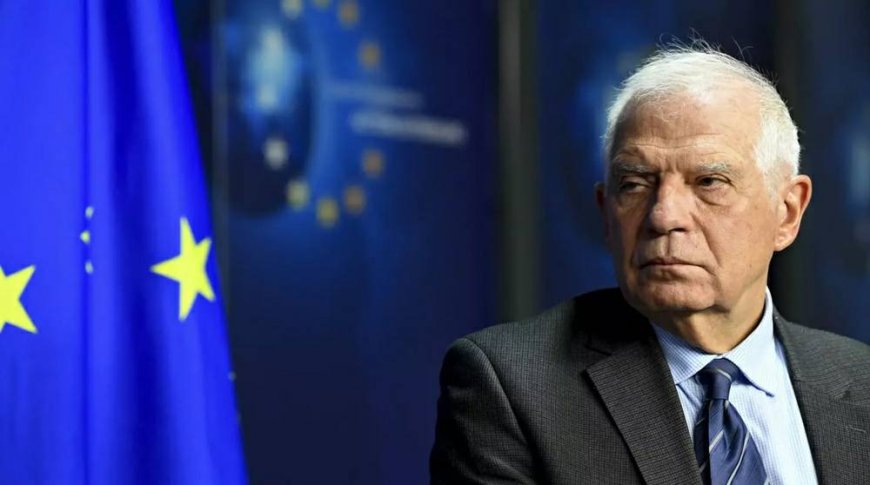Europe's Diplomatic Dance: A Balancing Act or a Time-Killing Charade?
The recent convening of European Union members in Brussels has sparked contemplation over the continent's stance on the ongoing conflict in the Middle East. In an address delivered by Josep Borrell, the European Union's foreign policy chief, a call for an immediate ceasefire in occupied territories resonated, along with a plea for the Israeli regime to facilitate humanitarian aid to the beleaguered Palestinian population. The warning of exacerbated conditions for 1.5 million Palestinian refugees in the Rafah region, should an attack occur, underscores the gravity of the situation.

The protracted negotiations for a ceasefire have unfolded against the backdrop of Western governments' strategic calculations aimed at alleviating pressure on the Israeli regime. The elusive pursuit of peace has been marked by a nuanced approach with multifaceted dimensions, warranting careful examination.
Foremost among these dimensions is the purported strategy of affording Israel time to rearm and recalibrate its military arsenal. Recent months have witnessed the depletion of Israeli military resources in the brutal suppression of Palestinian dissent, necessitating a replenishment that would ostensibly gear the regime for future operations. Western powers, it seems, have orchestrated a diplomatic charade to stall hostilities, affording the United States an opportune window to bolster Israel's military capabilities.
Historical echoes resound in this geopolitical chess game, with parallels drawn to past instances where ceasefire overtures paved the way for Western armament of the Israeli military, culminating in decisive victories over Arab adversaries. The specter of strategic maneuvering looms large, as geopolitical allegiances are deftly leveraged to secure advantageous outcomes.
Simultaneously, the European landscape has been roiled by public outcry against the Israeli onslaught on Palestine, epitomized by widespread protests denouncing Netanyahu's administration. The clamor for humanitarian intervention has reverberated across the continent, exerting mounting pressure on European governments to heed the calls for peace. The conundrum facing Western leaders lies in reconciling public sentiment with geopolitical exigencies, as human rights imperatives clash with realpolitik considerations.
The geopolitical calculus extends beyond mere humanitarian concerns, encompassing broader strategic objectives vis-à-vis the Iran-led Axis of Resistance in the volatile Middle East theater. The tactical maneuvers orchestrated by the Axis of Resistance, notably in the Bab-el-Mandeb Strait, have posed formidable challenges to Western interests, compelling a recalibration of policy stances. By engaging in ceasefire deliberations, Western powers seek to mitigate pressure on Israel while bolstering their own strategic positioning against regional adversaries.
At the heart of Europe's diplomatic juggling act lies a moral quandary, as governments grapple with reconciling public sentiment with geopolitical imperatives. The discord between professed ideals of human rights and pragmatic considerations of realpolitik underscores the complexities inherent in navigating the treacherous waters of international diplomacy. The delicate dance between public appeasement and strategic maneuvering underscores Europe's nuanced approach to the Israeli-Palestinian conflict.
In conclusion, Europe's diplomatic overtures towards brokering a ceasefire in the Middle East epitomize a delicate balancing act fraught with geopolitical ramifications. As the continent navigates the choppy waters of international diplomacy, the convergence of public sentiment, strategic imperatives, and historical precedents delineates a complex tableau of competing interests and moral dilemmas. Europe's role in shaping the trajectory of the conflict hinges on its ability to deftly navigate these intricate dynamics, with the specter of a truce looming large on the horizon.













































